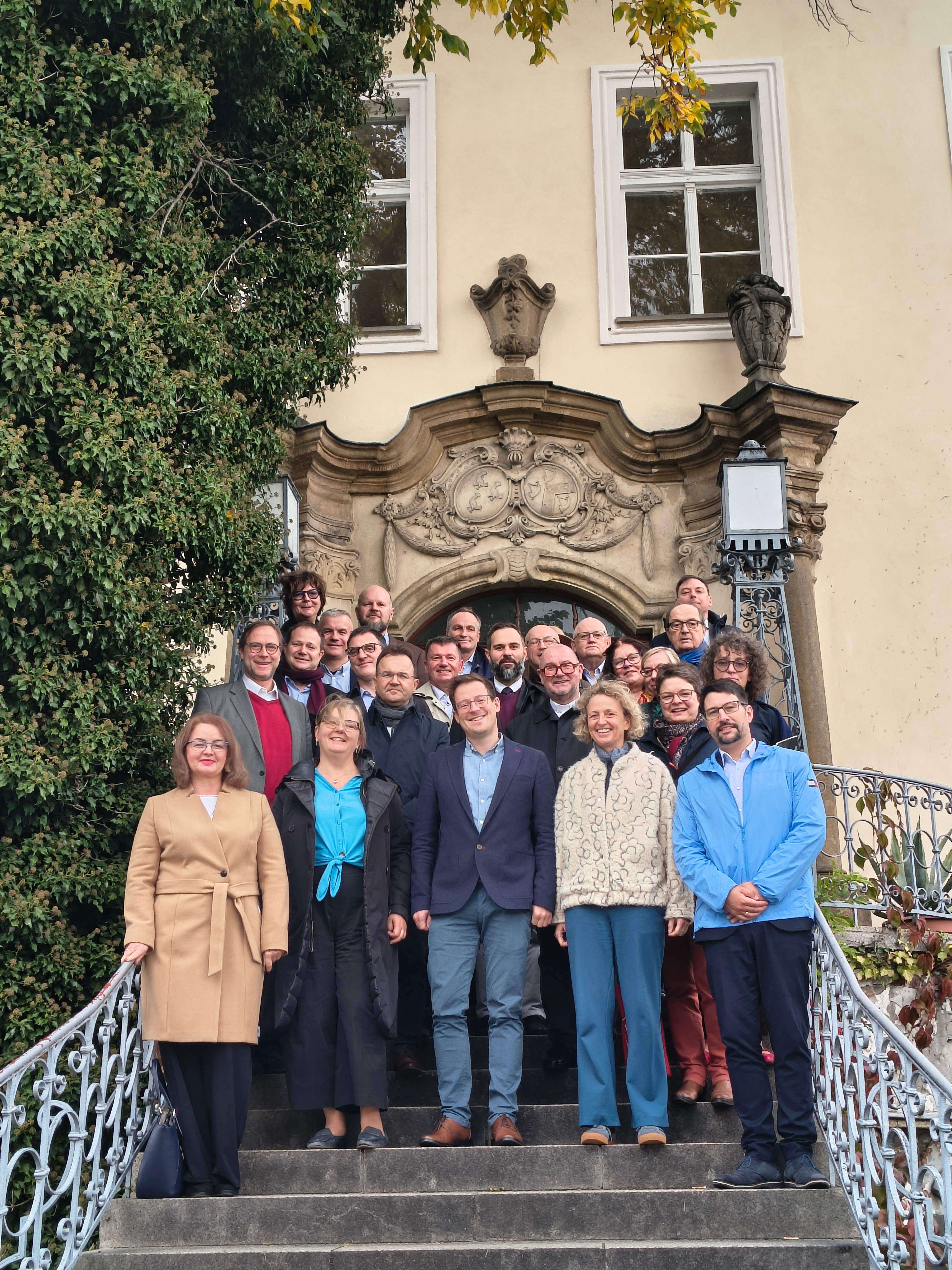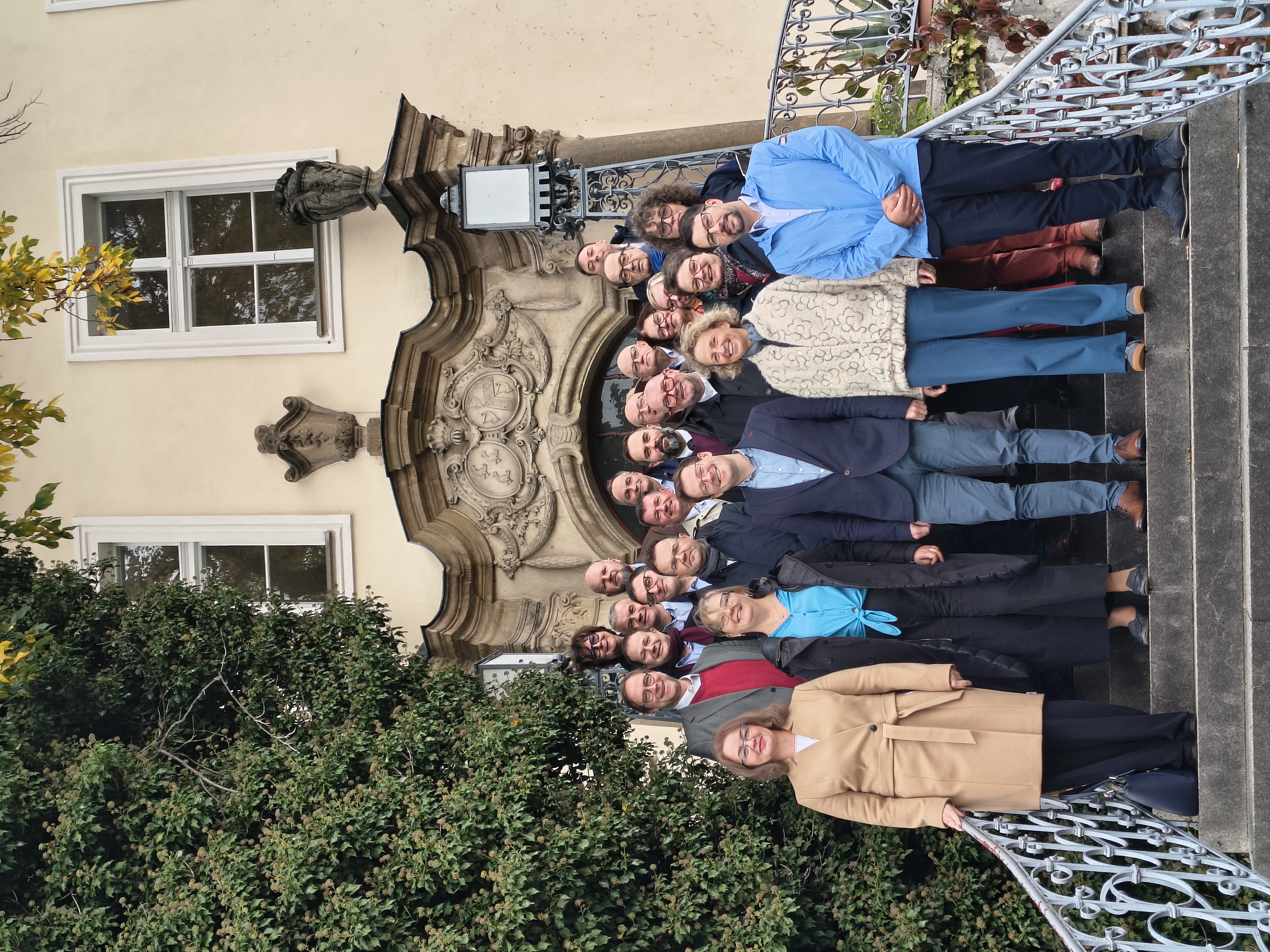
On October 10-11, 2025, the members of the Supervisory Board and the Board of Trustees met in Krzyżowa. For the members of the Board of Trustees, this was the last meeting of the current term (2020-2025). During the meeting, key challenges facing the Foundation were jointly discussed, and the past five years were summarized.
We extend our sincere thanks to all Members of the outgoing Board of Trustees for five years of commitment and support for the statutory activities of the Foundation, for substantive cooperation, and for their contribution to building the stability of our organization.
We thank you for this valuable time of our cooperation and wish you all the best in your future professional and social endeavors.
Read more: The Board of the Krzyżowa Foundation summarized five years of activity.

In 2025, we mark the 60th anniversary of the exchange of letters between the bishops of Poland and Germany—one of the most significant gestures of reconciliation in post-war European history. In their letter of November 18, 1965, the Polish bishops addressed the German bishops with the words: "we forgive and ask for forgiveness," initiating a process that permanently influenced relations between Poland and Germany.
On the occasion of this anniversary, the Krzyżowa Foundation for European Understanding is participating in a series of events commemorating this breakthrough moment. As part of these activities, Dr. hab. Robert Żurek is taking part in numerous conferences, symposia, and debates dedicated to the significance of this historic gesture.
📅 September 11, 2025 – Berlin The symposium “60 Jahre Briefwechsel” (60 Years of Correspondence), organized by the Deutsche Bischofskonferenz and the Katholische Akademie Berlin, took place. The event was dedicated to the significance of the bishops' letters in the history of Polish-German relations and their impact on the process of reconciliation between the nations.
📅 September 13, 2025 – Wrocław During a pilgrimage of the Archdiocese of Berlin, Dr. hab. Robert Żurek delivered a lecture entitled „Briefwechsel der Bischöfe von 1965 – historische Einordnungen” (The Bishops' Correspondence of 1965 – Historical Contextualization). The meeting was an opportunity to present the historical context of the bishops' letters and the role of the Churches in post-war dialogue.
📅 October 23, 2025 – Augsburg (Upcoming event) Dr. hab. Robert Żurek will participate in the event „Ein europäisches Wunder? Der polnisch-deutsche Bischofsbriefwechsel 1965 als Wegweiser für Frieden und Versöhnung” (A European Miracle? The Polish-German Bishops' Correspondence of 1965 as a Signpost for Peace and Reconciliation), organized by the Katholische Akademie in Bayern and the Akademisches Forum der Diözese Augsburg. Among the panelists will be, among others, Prof. Dr. Gesine Schwan. The discussion will focus on how the bishops' letters can inspire peace processes and reconciliation efforts in Europe today.
📅 November 4, 2025 – Hamburg Dr. hab. Robert Żurek will take part in a panel discussion during the anniversary evening at the Katholische Akademie Hamburg. The conversation will focus on the message of the letters in the context of contemporary social and political challenges. https://www.kahh.de/programm/kalender/
Read more: 60th Anniversary of the Bishops' Letter Exchange – The Krzyżowa Foundation in Actions for...

The Krzyżowa Foundation for Mutual Understanding in Europe was established by individuals who were deeply engaged in the difficult process of Polish-German dialogue. People who, despite the immense challenges arising from the tragic legacy of the Second World War and decades of prejudice and resentment, worked tirelessly to bridge the divides between Polish and German societies — including through confronting their shared history, acknowledging guilt, condemning perpetrators, and honouring the memory of victims.
Referring to this legacy, we fully understand the challenges now facing Poles and Ukrainians. We know how much patience and effort are required to foster a wise, truth-based dialogue between partners who respect each other’s dignity while seeking mutual understanding about their shared past.
At the same time, drawing on our experience in Polish-German dialogue, we are aware of how destructive actions can be when they fail to take into account the need to preserve the quality of mutual relations.
For this reason, we view with deep concern the rise of anti-Ukrainian rhetoric, which instrumentalises history and antagonises our societies — precisely at a time when we are facing a shared and enormous threat: Russia’s armed aggression against Ukraine and its hybrid aggression against Poland and other Western countries.
Read more: Statement from the Board of the Krzyżowa Foundation calling for an end to the strengthening of...
.png)
On 4 October 2025, Warsaw hosted the celebrations marking the 60th anniversary of the publication of the Eastern Memorandum of the Evangelical Church in Germany and the Letter of the Polish Bishops to the German Bishops – two landmark documents that became milestones in the post-war Polish-German reconciliation process.
To commemorate this occasion, a conference entitled “60 Years Later: Reconciliation in Times of Turmoil” was held, accompanied by a concert, prayer, and an ecumenical service. The events gathered representatives of the Churches, academia, politics, and media from Poland and Germany.
The Krzyżowa Foundation for Mutual Understanding in Europe had the honour of being a co-organiser of the celebrations, which served as a powerful reminder of the importance of dialogue, courage, and wisdom in building peace among nations.
Throughout the conference, it was repeatedly emphasised that reconciliation is not a one-time act but a long-term process, requiring truth, reflection, and a genuine willingness to listen to one another.
Read more: 60 Years of the Eastern Memorandum and the Letter of the Polish Bishops – A Reflection on...






.png)

